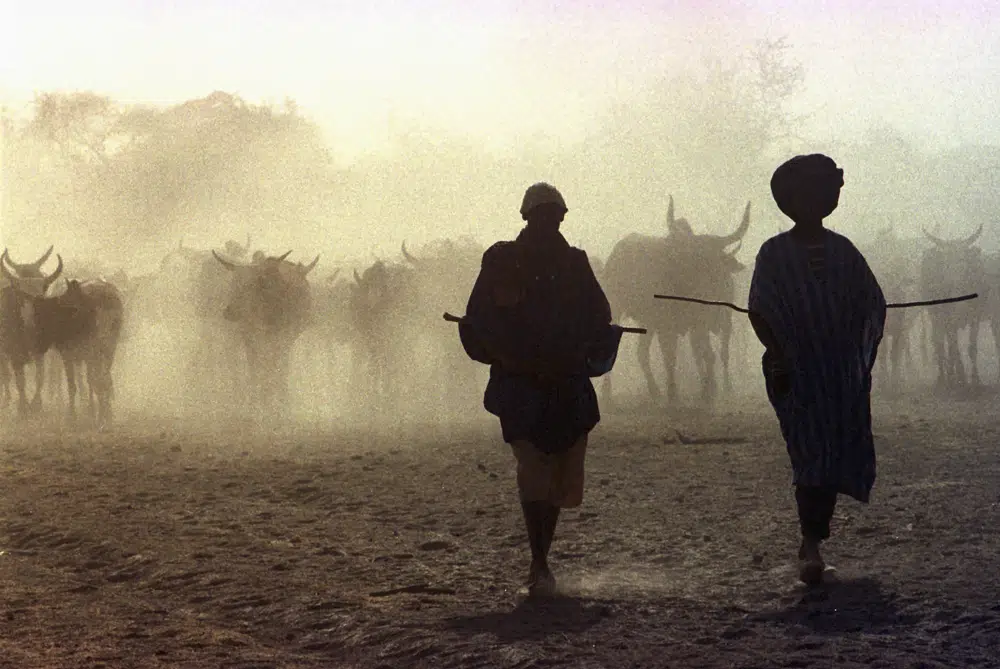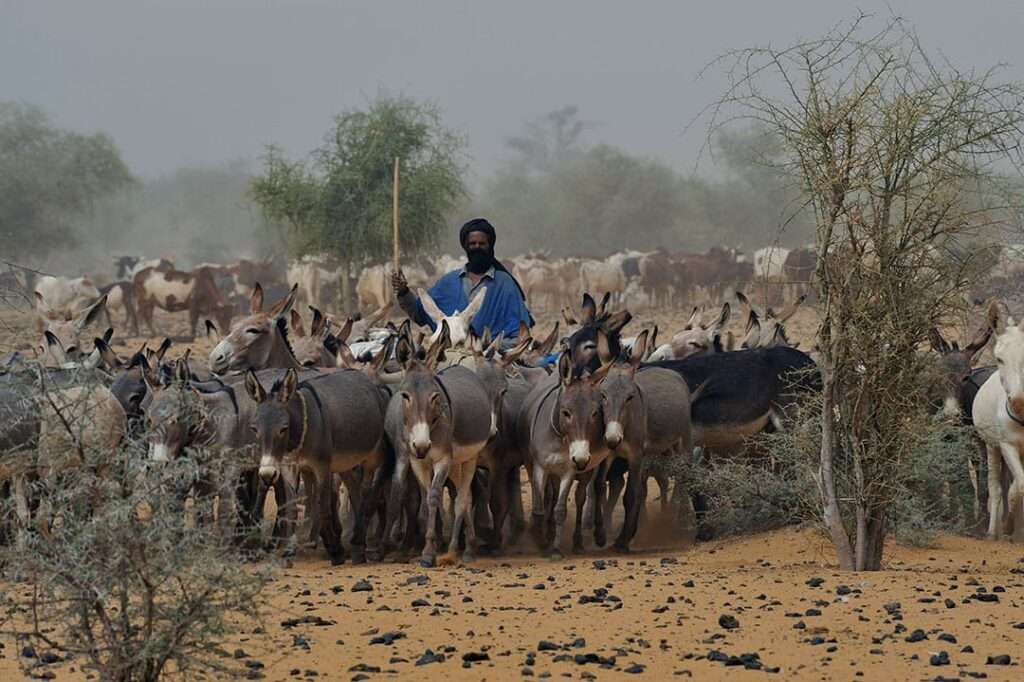Cattle raiding in Mali, in recent months has soared higher. Ayouba Ag Nadroun was at a market in central Mali in March, when Islamic Jihadists attacked the Market and killed dozens of people, stealing $10,000 worth of cows and camels.
Mr. Nadroun, a native from the Menaka Region of Mali, explained the trauma these Jihadists have been putting them through for some time now. “We lost everything,” he added.

Cattle raiding has now been the turning point for Islamic Jihadists, who have ties with the Al-Qaida and the Islamic State of Iraq and Syria, to acquire logistics, and finance their insurgencies in war-torn West Africa countries and the Sahel Desert.
As terrorists gain enormous control of territories, looting has increased and fueled conflicts among already impoverish communities, fighting to feed their families and keep them alive. This is according to report by the Global Initiative Against Transitional Organized Crime (GI-TOC).
The West Africa country, Mali, has been battling to keep the activities of these Jihadists at bay for decades now. Insurgency activities played a very critical role in the overthrew Blaise Campaore from power, in 2021.
Despite military assistance from France, which contributed victory against al-Qaida-linked militants in 2013, violence has not only ceased, but spread. Insurgency attacks have then spilled into neighboring Niger and Burkina Faso, where extremist are exploiting the grievances of the people, towards their state, to recruit fighters and control territories.

Whiles cattle rustling has been at the heart of Mali’s war economy for years, the recent insurgency attacks have been worrying. In the central Mopti region, one of the hardest hit by recent violence, some 130,000 cattle were stolen in 2021, and about the same amount were taken between 2018 and 2020 combined, according to GI-TOC.
Means Of Funding Jihadists Activities

Other means of funding terrorist acts involve drug trafficking, hostage taken and illegal mining activities. Analysts say livestock raiding are mostly preferred, because of the consistent cash flow involve, especially in Mali. They create a network to sell the stolen cattle, and use the money to buys cars and weapons for their activities.
“Unlike other criminal markets like cocaine and kidnappings, cattle rustling have proven to be resilient and stable source of income for armed groups, because Mali is a key regional producer and exporter of cattle” said Flore Berger, Sahel analyst at GI-TOC.
“It is likely that cattle rustling continue to provide source of revenue because countries in the region will continue to buy from Mali,” she added.
Villagers say, Jihadists are strategic about their theft, staking out watering holes, where they know the cattle will come to drink. “They set up shop next to the wells for several days and every time the thirsty animals come to get water, the terrorists take them,” Mahamad Ag Moustapha, the mayor of Inekar commune in Meneka region disclosed.
Net profit from stolen cattle in Mopti region under the influence of the Jihadists, was approximately $730,000 in a year. In neighboring Burkina Faso, where violence has been raging since 2016, jihadists can earn close to $50,000 monthly from cattle raiding, in Sahel, North and Center-North, where they operate.
“We are aware that, the money generated by the sale of the stolen cattle, is used to finance activities of the terrorists,” Col. Abdoulaye Dembele, Spokesperson for the Malian Army averred. “It is difficult to secure the cattle of Mali from terrorists, the country is vast, our first concern is to secure the people,” he added.
“We have recovered several hundreds of head cattle in Mopti, in the center, and also in the Meneka region. In both cases, we have handed the cattle to the local authorities, who will take charge of finding their owners and returning the animals to them. As long as the stolen cattle are within the radius of our military camps, we can intervene, but if it is far from the military camps, it will be difficult.”
Colonel Abdoulaye Dembele, Spokesperson for the Malian Army.
READ ALSO: Citizens Flee Sudan As Fighting Intensifies




















